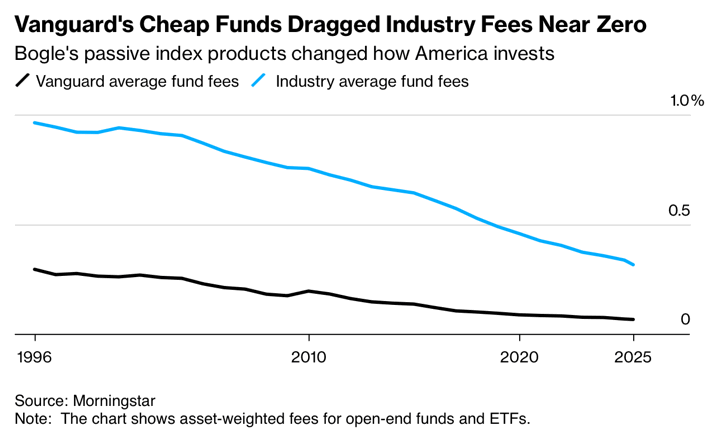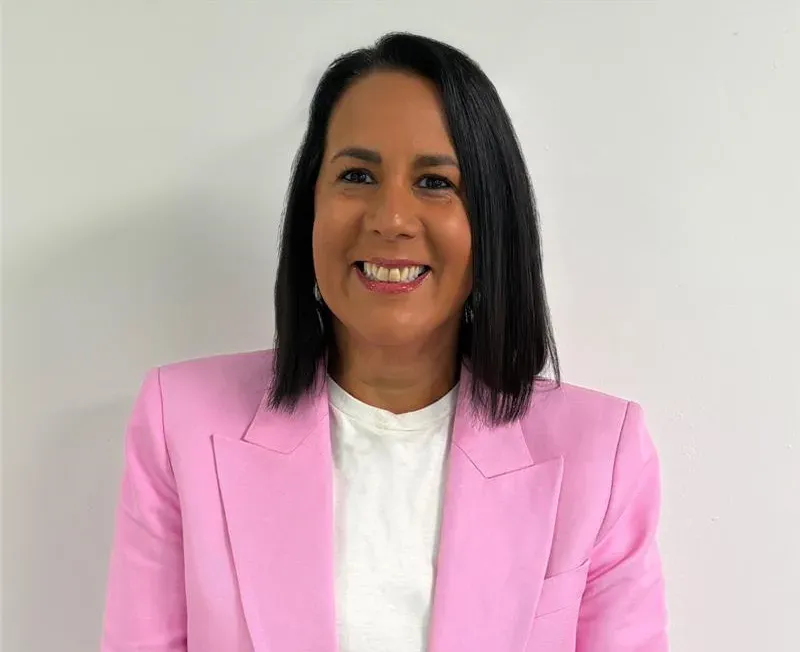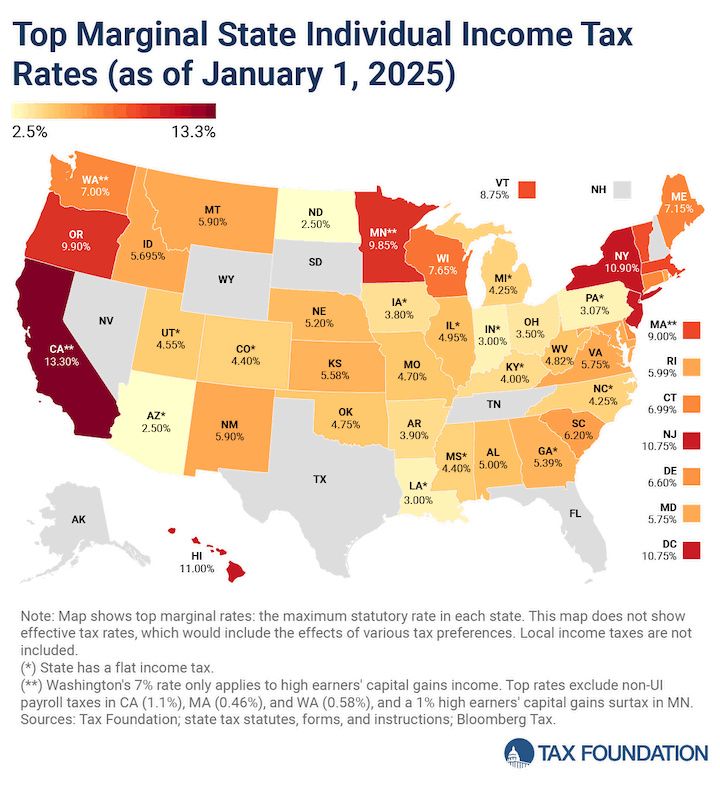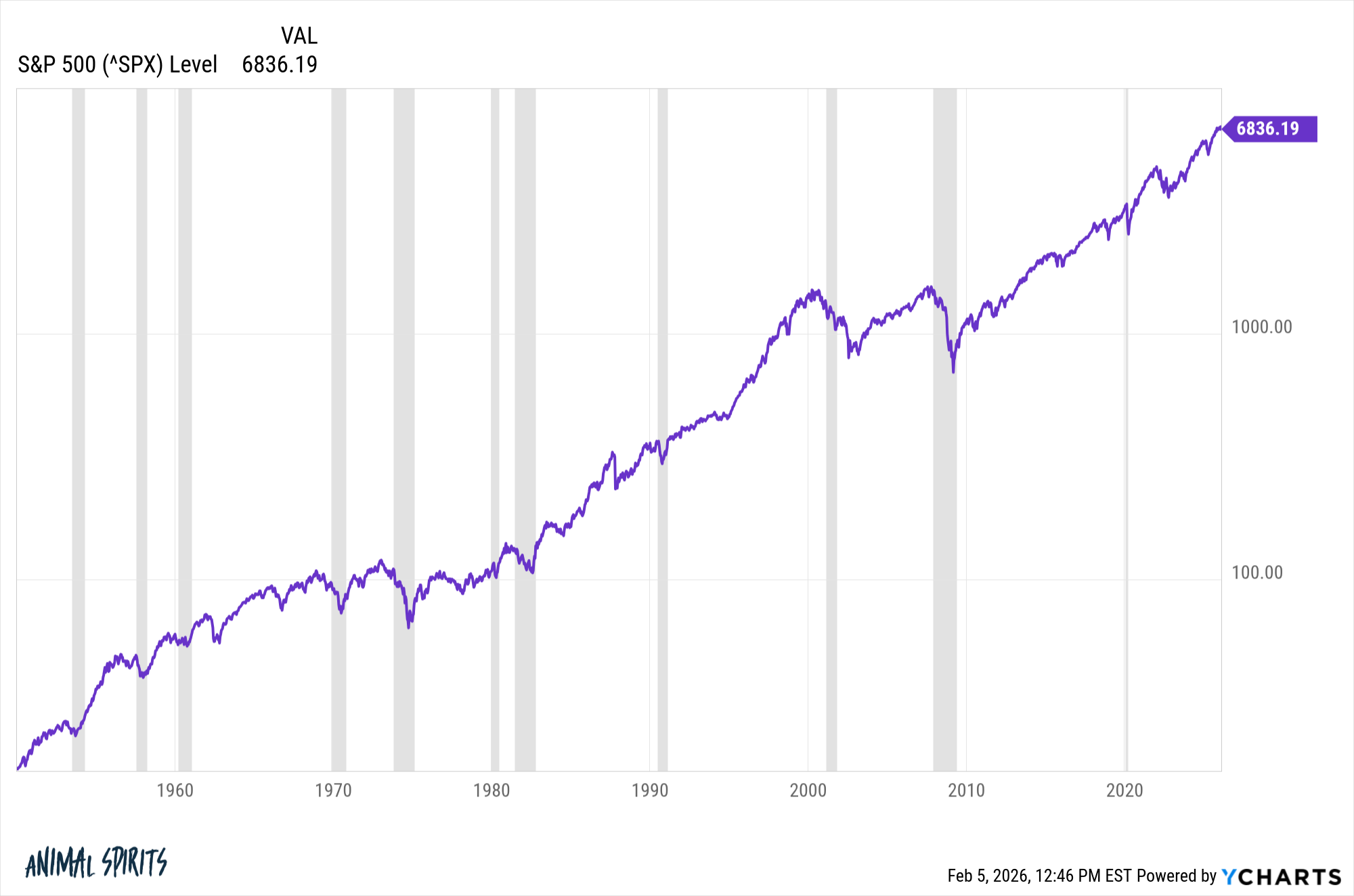It has been almost exactly a year since Salim Ramji moved from Blackrock to start his new job as CEO of Vanguard (July 8, 2024, announced May 2024). I don’t think it is a coincidence that he has been doing a bunch of extended interviews recently, including this Economist article (paywall, archive), this Morningstar Long View podcast, and Bloomberg article (paywall, archive). As someone with the majority of their net worth inside a Vanguard brokerage account and inside Vanguard ETFs, it was good to hear Mr. Ramji’s outlook and reasonings.
The Economist article provided a nice high-level overview of Vanguard’s history and core values, written in a very “Economist” manner with an overall positive take.
We also find that future expansion areas will include:
- Fixed-income ETFs. Vanguard has already launched 6 new bond ETFs this year. “The fixed-income market is twice the size of the equity market. It is far more inefficient than the equity market…It is far less understood”.
- Financial advice/wealth management. “The goal, he says, is to “democratise advice, just as we have democratised investing”.”
- Access to private markets (in partnership with Blackrock). “Today the haystack includes private as well as public markets.”
The Morningstar podcast had a nice nugget that showed that (for now) there are still some limits to their growth aspirations:
- No plans for a crypto ETF. No gold ETF. No silver ETF.
Ramji: It was pretty straightforward.
Greg Davis, our CIO, and I had talked about it kind of early in my arrival. And at Vanguard, we like investments that deliver cash flow or have the prospect of delivering cash flow. That could be cash, could be bonds, could be equities, could, over time, if the circumstances are right, be private markets. We don’t like things that don’t.
We don’t have a gold ETF. We don’t have a silver ETF. And so it’s a logical extension as to why we don’t have ETFs in other things that don’t either deliver cash flow or have the prospect of delivering cash flow. And that’s OK.
The market’s well-served. Investors can decide. But we also want to be clear about what our own investing philosophy and investing thinking are. And we’re OK not being everything to everybody.
And there are certain things that don’t fit our investment philosophy, or we don’t think we have particular scale or expertise in. And so I’d put some of those types of ETFs in that bucket.
The Bloomberg article added more context behind how he’s making all these changes. Vanguard (and its Board) has been shaking things up a bit internally, including hiring more outsiders into executive roles, and paying higher salaries to get them. Some long-time insiders got pushed out, and it’s hard to know the truth of how much the company has changed.
Ramji has been reaching out to acquaintances at banks and asset management companies.
Insiders say Vanguard is offering pay packages that, while not quite New York-level, nonetheless amount to big money in Malvern. In some cases, Ramji is dangling seven-figure deals. “We’ve been able to attract people from other firms who have the same sense of mission,” he says.
Ramji has also worked to break down silos and speed up decision-making (the product-strategy team was flabbergasted when he okayed a new project within minutes, insiders say). The new HR boss arrived from Principal Financial, via Wells Fargo & Co. and HSBC Holdings Plc. In a departure, Vanguard has based its new head of public relations in New York, where it doesn’t have an office.
Multiple journalists suggest that Vanguard is getting into private markets because they need to have an expensive “high margin” option in order to subsidize the rest of the operations.
Yes, that is how Fidelity and others do it, but that doesn’t mean that’s how Vanguard has to do it. Vanguard can offer a quality product “at cost”, even if it’s not always the absolute lowest cost, every time.
From my perspective way back in the cheap seats, I can see that change is definitely in the works at Vanguard but they are still at least saying the right things about maintaining the culture. I remain concerned but hopefully optimistic.
Disclaimer: This story is auto-aggregated by a computer program and has not been created or edited by finopulse.
Publisher: Source link








